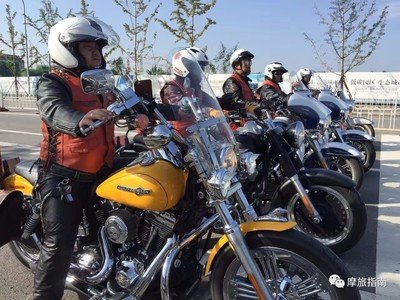
Building Strong Relationships and Social Skills in Motorcycling
CustomStoreMCBikerMotorcycling is more than just a mode of transportation; it’s a lifestyle that fosters strong relationships and a sense of brotherhood among riders. Whether you are a lone wolf or part of a motorcycle club, developing effective social skills is crucial for building meaningful connections and ensuring a safe and enjoyable riding experience. In this article, we explore the importance of interpersonal relationships and social etiquette within the motorcycling community.
1. The Brotherhood of the Open Road
One of the most defining aspects of motorcycling culture is the sense of camaraderie among riders. Regardless of background, age, or experience, bikers share a common passion that brings them together. This unique bond is built on mutual respect, trust, and a shared understanding of the joys and risks of riding.
Respect and Trust
Respect is the foundation of strong relationships in the motorcycle community. Simple gestures such as acknowledging fellow riders with a wave, following riding etiquette, and respecting different club cultures can go a long way in establishing trust and goodwill.
Building Connections Through Shared Experiences
Participating in group rides, attending motorcycle events, and engaging in club activities help riders strengthen their connections. These shared experiences create lasting memories and deepen the bond between individuals, reinforcing the spirit of unity.
2. Social Skills Every Rider Should Master
Being a skilled rider is important, but possessing strong social skills enhances your experience and helps you navigate the community more effectively. Here are some key social skills every rider should develop:
1. Communication Skills
Clear and effective communication is crucial, especially during group rides. Whether using hand signals, helmet communication systems, or verbal cues during pit stops, proper communication ensures safety and coordination among riders.
2. Conflict Resolution
Disagreements can arise in any social setting, including motorcycle clubs or group rides. Being able to handle conflicts calmly, listen to different perspectives, and find solutions without escalating tensions is essential for maintaining harmony within the riding community.
3. Active Listening
Listening attentively to fellow riders strengthens relationships and demonstrates respect. Whether discussing ride plans, sharing personal experiences, or providing support during challenging times, active listening fosters meaningful connections.
4. Adaptability and Open-Mindedness
Motorcycle culture is diverse, encompassing riders from all walks of life. Being open-minded and adaptable to different personalities, riding styles, and traditions allows you to integrate smoothly into various social circles.
3. Motorcycle Clubs and Group Riding Etiquette
Joining a motorcycle club or riding group comes with responsibilities and expectations. Understanding the social dynamics and following proper etiquette helps create a positive and respectful environment for all riders.
Club Hierarchy and Respect
Most motorcycle clubs operate with a structured hierarchy, where members earn their positions through dedication and commitment. New riders should take the time to learn about club traditions, rules, and leadership structures, showing respect to senior members and following established protocols.
Safety and Group Riding Etiquette
When riding in a group, maintaining proper formation, signaling intentions, and following the leader’s cues are critical for ensuring safety. Riders should also be mindful of maintaining appropriate spacing and avoiding reckless behavior that could endanger others.
Participation and Contribution
Active participation in club activities, meetings, and charity rides demonstrates commitment and strengthens your position within the group. Volunteering for responsibilities and supporting fellow members builds trust and reinforces camaraderie.
4. Building Relationships Beyond the Road
While the thrill of riding brings bikers together, relationships extend beyond the road. Strengthening bonds with fellow riders through social gatherings, online communities, and mutual support in personal matters fosters a deeper sense of brotherhood.
Engaging in Social Events
Motorcycle rallies, charity rides, and club meetings provide opportunities to connect with like-minded individuals. Engaging in social events strengthens friendships and opens doors to new riding experiences.
Online Communities and Networking
With the rise of social media and online forums, riders can connect with the global motorcycle community. Joining Facebook groups, participating in motorcycle forums, and sharing riding experiences on Instagram or YouTube help build a broader network of friends and fellow enthusiasts.
Supporting Fellow Riders
Motorcyclists often look out for one another, offering roadside assistance, emotional support, and guidance to less experienced riders. Being there for fellow bikers in times of need strengthens trust and reinforces the strong bonds within the community.
5. Overcoming Social Challenges in Motorcycling
Despite the strong sense of community, riders may encounter social challenges, such as feeling excluded, navigating club politics, or handling conflicts. Here are some tips to overcome these challenges:
Breaking the Ice as a New Rider
Newcomers may feel intimidated when joining an established riding group. Approaching riders with respect, showing enthusiasm for learning, and gradually integrating into the group through participation in rides and events can help ease the transition.
Handling Club Politics
Some motorcycle clubs have intricate social dynamics and unspoken rules. Observing, learning from experienced members, and avoiding unnecessary drama or conflicts can help riders navigate these complexities effectively.
Dealing with Negative Stereotypes
Motorcyclists often face misconceptions and stereotypes from non-riders. Representing the community positively by demonstrating good behavior, respecting traffic laws, and engaging in charitable activities helps break down these stereotypes.
Conclusion
Motorcycling is as much about the people as it is about the ride. Developing strong interpersonal relationships and social skills enhances the overall experience, creating a supportive and inclusive community. By practicing respect, effective communication, and active participation, riders can forge lasting friendships and contribute to the vibrant culture of motorcycling. So, whether you ride solo or as part of a club, remember that the journey is always better when shared with good company.









